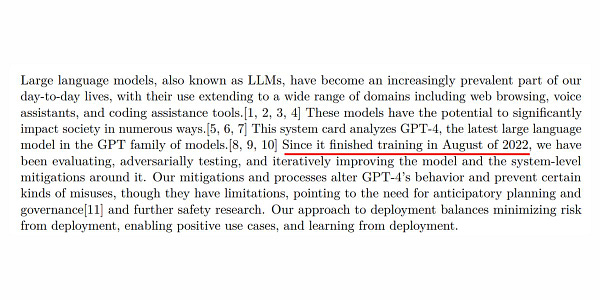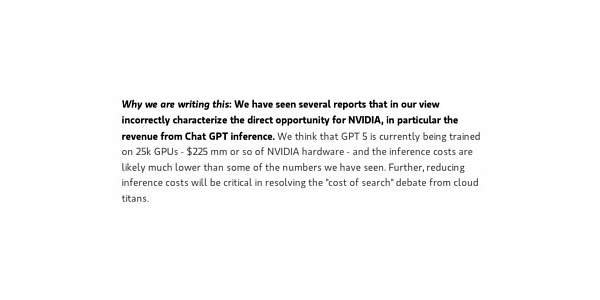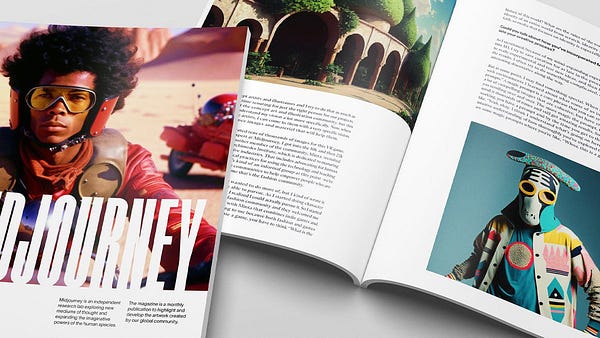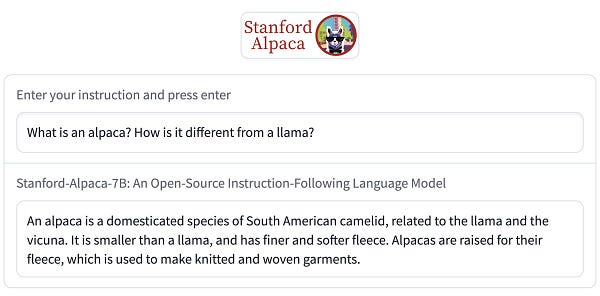Hey everyone, welcome to another installment of What’s New in AI, the weekly newsletter summarizing trends happening in the world of artificial intelligence. A super packed news week, from new model launches, to AI integration with products, and more. Let’s dive in:
OpenAI’s GPT4 Launch
Earlier this week, OpenAI announced the launch of GPT4, their newest AI model with multimodal capabilities.

It seems like the model had finished training mid-last year. The OpenAI team spent the remainder of their time testing the model to understand its full functionality and ensure safety.



You can already try GPT4 in OpenAI’s playground, but they’re quickly rolling out API access as well (sign up to their waitlist here).
Anthropic’s Claude Launch
Anthropic released Claude, their LLM competitor to OpenAI’s GPT. The team claims the bot is safer and more conversational than GPT.
We’re offering two versions of Claude today: Claude and Claude Instant. Claude is a state-of-the-art high-performance model, while Claude Instant is a lighter, less expensive, and much faster option. We plan to introduce even more updates in the coming weeks.

Google’s Releases
Google dropped a ton of new products in the AI space this week. First up, they announced a generative AI integration across their Google Workspace product suite (Gmail, Docs, Sheets, etc.)

Next, they announced the PaLM API & MakerSuite.
For developers who are experimenting with AI, we’re introducing the PaLM API, an easy and safe way to build on top of our best language models. Today, we’re making an efficient model available, in terms of size and capabilities, and we’ll add other sizes soon. The API also comes with an intuitive tool called MakerSuite, which lets you quickly prototype ideas and, over time, will have features for prompt engineering, synthetic data generation and custom-model tuning — all supported by robust safety tools.
(Source)
Finally, they also announced Med-PaLM 2, a new LLM specifically for medical purposes.
Recently, our next iteration, Med-PaLM 2, consistently performed at an “expert” doctor level on medical exam questions, scoring 85%. This is an 18% improvement from Med-PaLM’s previous performance and far surpasses similar AI models.
(Source)
Midjourney v5 Launch
Midjourney released a new version of their model, which creates images that look more realistic than ever.

They also launched a Midjourney magazine, which is a monthly release of images from creators along side interviews. It’s an amazing marketing play by the company.





LLaMA spinoffs
Since the leak of LLaMA’s weights last week, the open source community has been tinkering with Meta’s LLM.
@ggerganov, an open source developer, has spearheaded the progress of adopting LLaMA to run on limited resources. You can now run the LLM on your personal computer, or even a Pixel 6 smartphone.
You can see his work in this Github repository.
Similarly, a research lab at Stanford has created Alpaca, a model based on LLaMA that is small in terms of compute power but can behave like OpenAI’s GPT.


The open source community is rapidly accelerating the process of AI developments. This was previously not possible since most LLM models were kept proprietary behind closed doors.
Microsoft 365 Co-Pilot
Microsoft announced that their 365 suite (including Word and Powerpoint) will now have co-pilot capabilities powered by GPT.

The announcement brings questions around the defensibility of current startups in the market that were building very similar tooling.
Adept’s $350M Series B
Adept, an AI startup building “an AI teammate for everyone”, announced a $350 million Series B round co-led by General Catalyst and Spark Capital.
The cash injection brings Adept’s total raised to $415 million, which co-founder and CEO David Luan says is being put toward productization, model training and headcount growth. “Giant foundation models for language and for images have shown astounding capabilities in the last few years. Adept is building on this momentum via a new kind of foundation model that can perform actions on any software tool using natural language,” he said in a press release.
(Source)
Fun Bites
Duolingo launched MAX, a new way to learn languages powered by GPT4.
Stripe announced a collaboration with OpenAI to integrate GPT4 into payments processing.
That’s all the highlights for this week! This newsletter is powered by the Cerebral Valley community.







